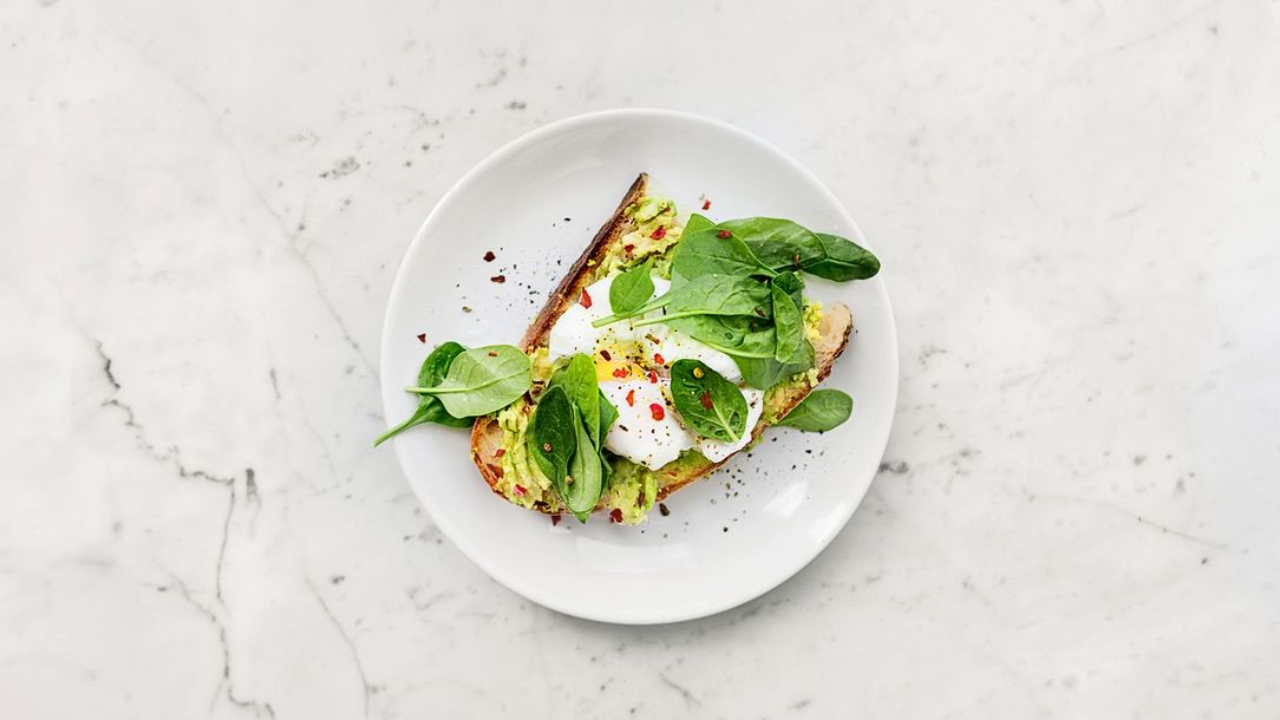

How to navigate weight loss or health goals AND food freedom/healing your relationship with food & your body

Have you ever wondered if it is possible to have a healthy relationship with food and your body and be able to pursue strength, weight, physique, or health goals?
*Trigger warning: This post discusses weight loss. If that is not a topic that is beneficial for you at this time, this post is likely not for you but feel free to check out many of the other blog posts available on this site*
This article is a brief outline from a podcast episode, to hear more detail about each topic/point, listen to the full episode here.
To preface this article, you absolutely do not need to have strength, weight, or physique goals. However, many people would like to pursue health and fitness-related goals without negatively impacting their physical, mental, or emotional health and are not sure how to go about that process with diet culture being so pervasive.
At the beginning of the episode version of this blog post, I opened up by discussing self-acceptance and why it is okay to have goals. If you would like to listen, you can find the full episode here.
When it comes to navigating weight loss or health goals AND food freedom/healing your relationship with food & your body there are 10 main things to keep in mind:
- BE IN A PLACE THAT IT IS SAFE TO CONSIDER WEIGHT LOSS- Physically, you are not underweight or malnourished. Mentally, you have a good relationship with food, yourself, and your body. Emotionally, you are regulated & emotions don’t drive all of your food decisions. You NEED a good baseline first in terms of your relationship with food and your body to avoid getting caught up in diet culture or adopting an all-or-nothing mindset. For obvious reasons, it is not healthy to pursue weight loss if you are already physically underweight but it's less obvious to consider the state of your mental health...are you in a position where food is a coping mechanism or form of control for you or are you hoping that losing weight will be a magical solution to help you feel fulfilled and finally love yourself? If so, it is important to work through this first.
- No longer be willing to put your goals over your relationship with food & your body. Decide that your physical, mental, and emotional health matter more to you than reaching any specific goal. You can’t just pretend to do this one, you have to reach a point in your relationship with yourself where your health and mental well-being really do matter more to you than reaching a particular number on the scale.
- Work on self-acceptance and body neutrality- realizing that you are more than just your body, having other goals for fitness such as strength goals, having fun, or learning something new.
- Deconstruct diet culture - understand why you have a drive and desire to lose weight - often times we make weight loss mean something greater than it really does or think it will bring us something more than it will actually bring us. Many people put a lot of hope into weight loss believing that it will somehow improve all areas of their life. They believe that "if I could just lose weight, I would find a partner, have my dream job, feel great about my body, make more money, and never struggle again." But this is not the way that life works and there is no guarantee losing weight will improve any of these areas of your life. That is not to deny that living in a thin or socially acceptable body can make certain aspects of life easier. We live in a world that prioritizes thinness. However, losing weight or achieving body goals is not a magic cure-all and if you are using weight loss as a way to feel or achieve something else you will ultimately end up disappointed. It is also important to understand what drives your desire to lose weight. It should not be because it is what you feel that you need to do to attain other things in life.
- Rather than focus on your end goal ALONE focus on who you want to become in the process. Do you want to be a person who is fit but stressed & has no fun, pleasure, or social life? Or someone who has to go to extremes to achieve results and then stay at those extremes to keep those results? Or do you want to be someone who reaches your goals while respecting yourself and nourishing your body?
- Assess all areas of your life and do not pour all of your time, energy, and attention into your health and fitness goals. Shift your perspective about how important your goals are compared to other things. What other aspects of your life can you start dedicating time to so that you are not all consumed by weight loss? Relationships, hobbies, your career, friendships, finances, etc.
- Make sure that your goals are realistic. Sometimes we have unrealistic goals. This is not to say you can’t be lean or fit or toned but even at the lowest weight that your body could be at while still being healthy, your body is going to look different than other people. It is important to make sure that your goals are appropriate for your body. I recommend talking with a dietician, personal trainer, or doctor to determine if your goals are healthy and realistic.
- Let go of dieting and rigid food rules and only implement nutrition tools or guidelines if they feel good to you, not just because it's what someone else is doing to lose weight. Focus on listening to your own body and hunger signals. Do not base the amount of food or types of food that you eat off of someone else just because it is "working for them." It is important to learn how to tune into your own body's needs or you may be eating more or less than what your body needs to thrive. You can learn how to do this in The Unbounded Body Program.
- Know your triggers and know that there is a difference between thoughts vs. urges. Even if you have an amazing relationship with food and your body now, you may still have occasional thoughts of dieting or restricting. That is okay! It is what you do with the thoughts that truly matters. You do not need to act on these thoughts just because you have them. This can be hard if you are surrounded by other people who act on these thoughts regularly & I highly recommend seeking out a therapist if this is something that you struggle with.
- Let go of the rigidity and all-or-nothing mindset. Implement nutrition and fitness habits/principles/protocols when they reduce stress not add to it. Let go of rigidity around food and be flexible with any habits/principles/protocols that you choose to adopt. Remember that life happens and you do not need to. be perfect.
Listen to the full episode here.
Liz

